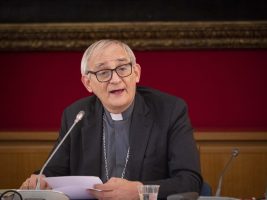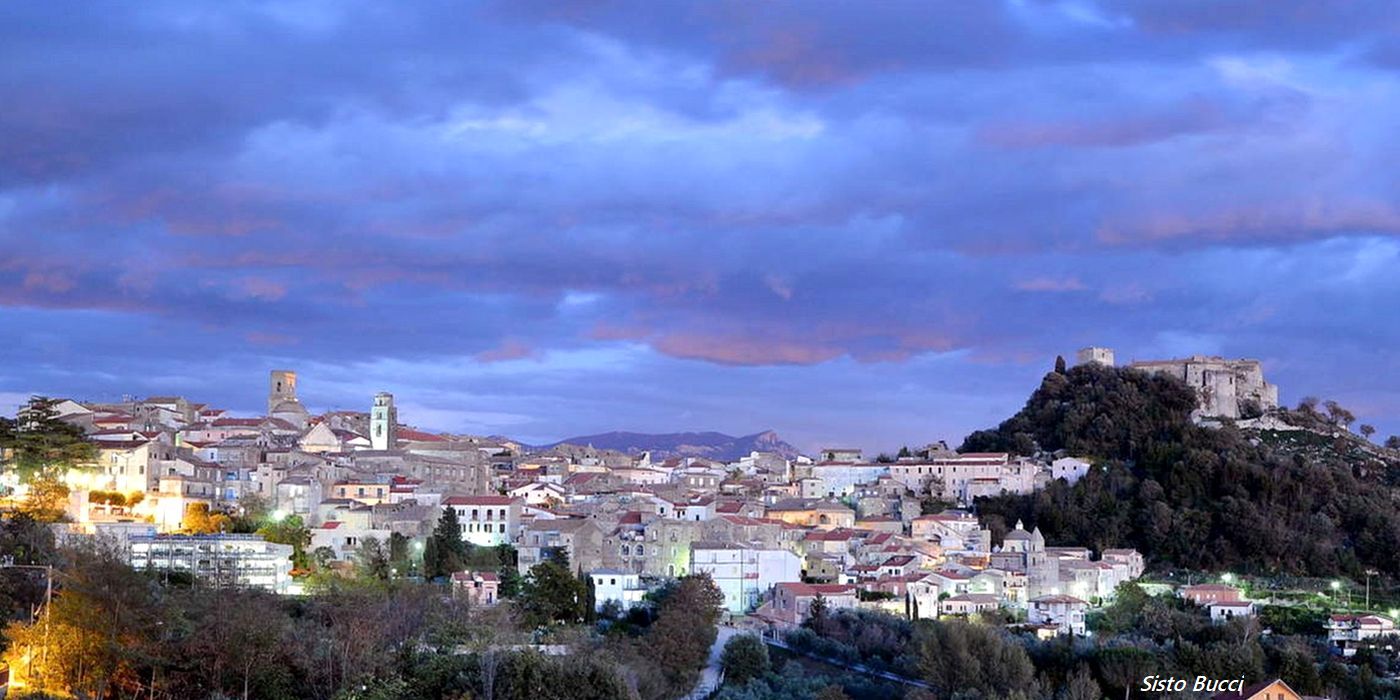Card. Zuppi: “Italian society is not at peace, but the Church is a home with open doors”

“Italian society is not at peace,” but the Church “is a house with open doors.” These two threads were the focus of the introduction by Card. Matteo Zuppi, archbishop of Bologna and president of the Italian Episcopal Conference, who at the opening of the Italian bishops’ permanent council, underway in Rome until Sept. 27, gave a wide-ranging analysis of the Italian and international scenario, dealing with issues such as war and peace, migration, the growth of violence among young people, sexuality, feminicides, poverty and decreasing birth rates, the “working poor” and workplace deaths. “Italy cannot be viewed in isolation from Europe and the rest of the world,” the Cardinal began immediately after the tribute to President Napolitano, whose funeral will be celebrated tomorrow in secular form. “We are not a residual minority but a creative minority,” he summarized in the wake of Benedict XVI: “The Church in Italy is a Church of the people.”
“Our world needs peace and unity”,
he continued, referring to the international scenario: the war in Ukraine is “a drama at Europe’s doorstep that concerns us all, as men and women of this time, before being European citizens. The Holy Father’s action for peace, in addition to his words, reminds us that we must all act and pray for peace”. “We always remember the Ukrainians and we continue to support them in the Ukraine or in Italy, exiled from their land”, the Cardinal continued, thanking “the many families who have made themselves available to take in Ukrainian children”. “The time has come to lay down the weapons. It is time to return to dialogue, to diplomacy. It is time for the plans of conquest and military aggression to be put away”, he appealed, borrowing Pope Francis’ words. In the central part of the introduction, he touched upon the theme of migrations:
“Wars, environmental degradation, insecurity, poverty, and the failure of quite a few states are at the root of refugee and migrant flows. We must manage a vast epochal phenomenon with humanity and intelligence.”
According to Zuppi, “the mistake – not since today – has been to politicize the phenomenon of migration, also conditioned by consensus and fears.” Instead, migration “should be viewed as a great national question, which requires the cooperation and input from all political forces”, he suggested, in harmony with Bergoglio’s auspice in Marseille, “in full continuity” with the Bari and Florence legs. As the Pope said, “we are at a crossroads: we can choose the culture of fraternity or the culture of indifference”. It is therefore necessary to find a “collaboration between political and social forces that is essential to create a system that is welcoming, not opportunistic, not just about security because the real challenge is to govern a phenomenon of epochal dimensions and turn it into an opportunity, which it is.” Thanks to the CEI’s “Free to leave, free to stay” initiative and to humanitarian corridors, “it has been possible to open the first legal channel of entry for unaccompanied minors from Niger to the Italian region of Piedmont through study permits (Pagelle in tasca project)”.
The increase in feminicides, suicides, and violence among young people, amplified by social network hype, are one of the signs that “Italian society is not at peace.”
“In public, everything is happening differently than in the past: in the ‘furnace’ of social media, which are ruthless and competitive,” the Cardinal noted. “No previous generation has experienced this: you have to self-define yourself, you have to put your face and body on display, you measure how many people follow you. On social media it is easy to make mistakes and end up in disgrace, scarred by anxiety, fueled by the crisis of great collective dreams and much more fragile educational and relational networks.” This is why it is necessary to reflect on the issue of education, which “is not an emergency but is the everyday life of the Church.”
“Perhaps it is time for us believers, too, to find the courage to speak about sexuality without pretenses, from the perspective of the integration of human life and spiritual life.”
is his suggestion for the emotional education of young people. Positive signs include the awareness that the Church is “a family among families, a house with open doors,” and the river of young people who flocked to the WYD in Lisbon, where the 65,000 Italian attendees were “a surprise compared to the forecasts.”
In the Church, “polarizations are sad and sterile.”
lamented Zuppi, mentioning, in particular, the “too many resistances” toward Pope Francis and his message, “often expressed in a spirit of opposition, favored by social media.” Synodality, on the contrary – in reference to the now imminent Synod – “means questioning the entrenched ecclesial solitudes in getting together, in communion, in listening, in the tremendous missionary commitment that awaits us by confronting the crowd and its sufferings. Never without the other!” For the IEC president, “the synodal process is a great opportunity for renewal and brotherhood.”
“Poverty in Italy can now be said to be a structural phenomenon, since it touches almost one in ten people,”
Zuppi finally noted, turning to domestic policy. Among the most urgent problems are housing and rising rents, for which “public interventions must be urged.” To counteract decreasing birth rates we also need “integrated services on the ground to support families, not just material aid.” Other phenomena to be taken into account include that of the “working poor,” moonlighting and people quitting their jobs, especially among young people. Not to mention the victims of accidents at work, which as President Mattarella said are an “outrage to civil coexistence.”
(Fonte: AgenSIR – News archiviata in #TeleradioNews ♥ il tuo sito web © Diritti riservati all’autore)




